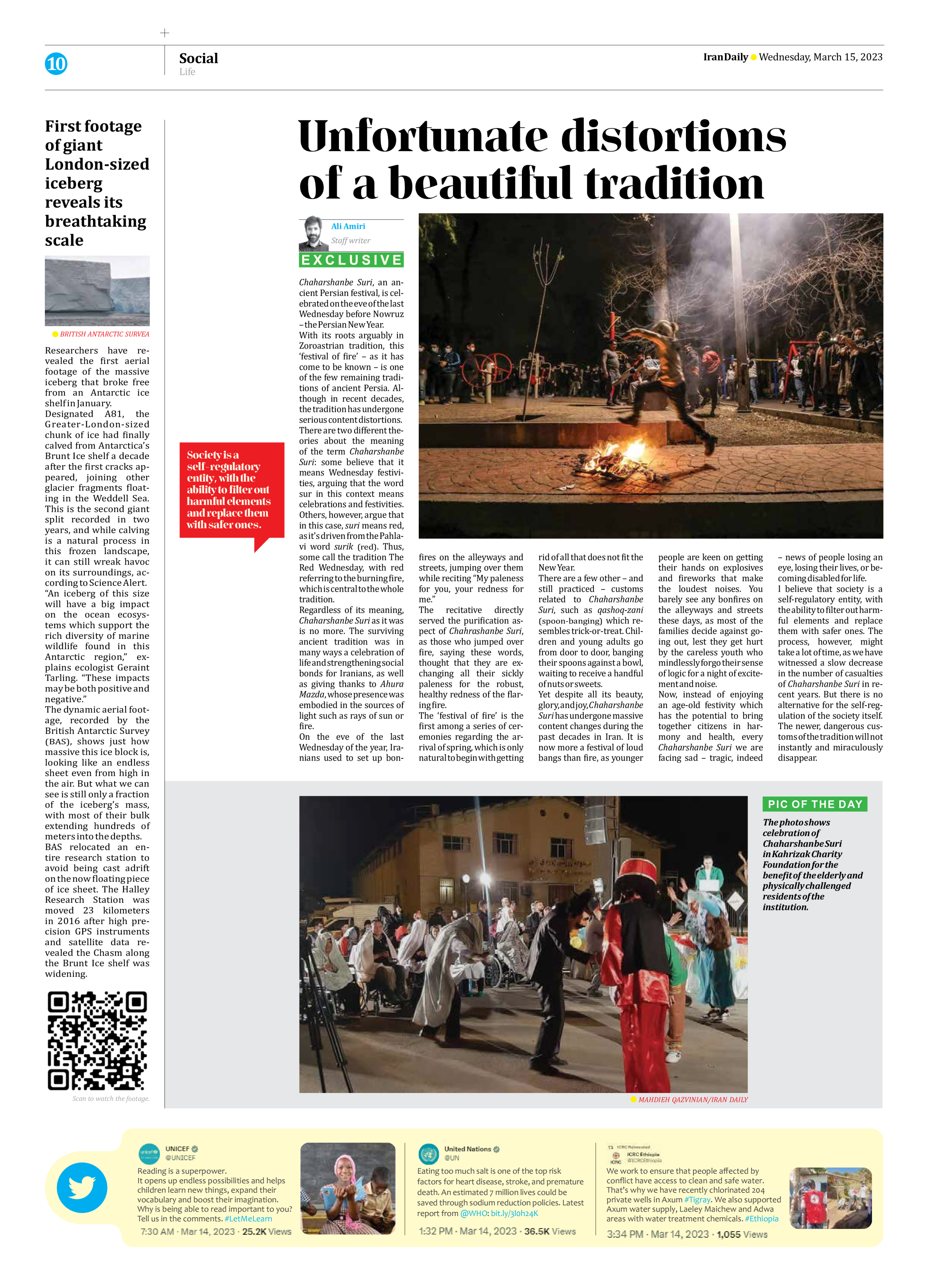
Unfortunate distortions of a beautiful tradition
Ali Amiri
Staff writer
Chaharshanbe Suri, an ancient Persian festival, is celebrated on the eve of the last Wednesday before Nowruz – the Persian New Year.
With its roots arguably in Zoroastrian tradition, this ‘festival of fire’ – as it has come to be known – is one of the few remaining traditions of ancient Persia. Although in recent decades, the tradition has undergone serious content distortions.
There are two different theories about the meaning of the term Chaharshanbe Suri: some believe that it means Wednesday festivities, arguing that the word sur in this context means celebrations and festivities. Others, however, argue that in this case, suri means red, as it’s driven from the Pahlavi word surik (red). Thus, some call the tradition The Red Wednesday, with red referring to the burning fire, which is central to the whole tradition.
Regardless of its meaning, Chaharshanbe Suri as it was is no more. The surviving ancient tradition was in many ways a celebration of life and strengthening social bonds for Iranians, as well as giving thanks to Ahura Mazda, whose presence was embodied in the sources of light such as rays of sun or fire.
On the eve of the last Wednesday of the year, Iranians used to set up bonfires on the alleyways and streets, jumping over them while reciting “My paleness for you, your redness for me.”
The recitative directly served the purification aspect of Chahrashanbe Suri, as those who jumped over fire, saying these words, thought that they are exchanging all their sickly paleness for the robust, healthy redness of the flaring fire.
The ‘festival of fire’ is the first among a series of ceremonies regarding the arrival of spring, which is only natural to begin with getting rid of all that does not fit the New Year.
There are a few other – and still practiced – customs related to Chaharshanbe Suri, such as qashoq-zani (spoon-banging) which resembles trick-or-treat. Children and young adults go from door to door, banging their spoons against a bowl, waiting to receive a handful of nuts or sweets.
Yet despite all its beauty, glory, and joy, Chaharshanbe Suri has undergone massive content changes during the past decades in Iran. It is now more a festival of loud bangs than fire, as younger people are keen on getting their hands on explosives and fireworks that make the loudest noises. You barely see any bonfires on the alleyways and streets these days, as most of the families decide against going out, lest they get hurt by the careless youth who mindlessly forgo their sense of logic for a night of excitement and noise.
Now, instead of enjoying an age-old festivity which has the potential to bring together citizens in harmony and health, every Chaharshanbe Suri we are facing sad – tragic, indeed – news of people losing an eye, losing their lives, or becoming disabled for life.
I believe that society is a self-regulatory entity, with the ability to filter out harmful elements and replace them with safer ones. The process, however, might take a lot of time, as we have witnessed a slow decrease in the number of casualties of Chaharshanbe Suri in recent years. But there is no alternative for the self-regulation of the society itself. The newer, dangerous customs of the tradition will not instantly and miraculously disappear.







